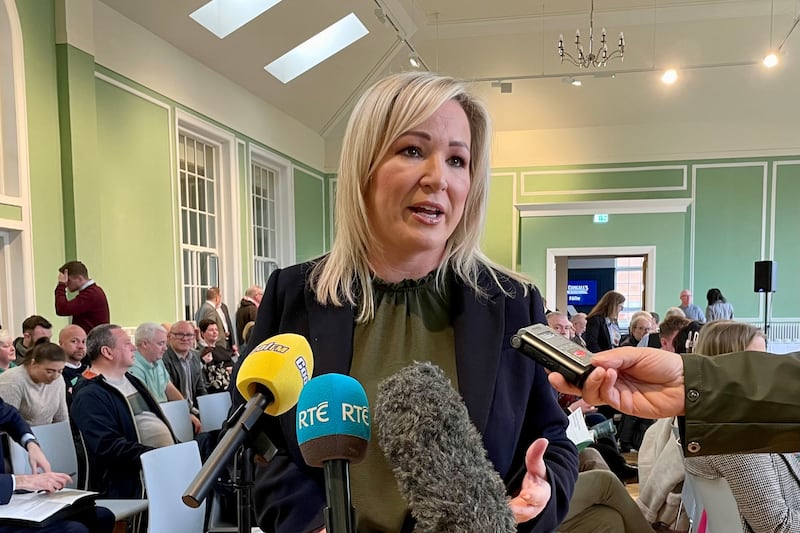One of the architects of the Good Friday Agreement has urged the British and Irish governments to meet to resolve ongoing issues around the peace accord.
Tim O’Connor, a former senior diplomat who was part of the Irish government delegation in the talks that led to the Agreement in 1998, said it has been a missed opportunity that Dublin and London have not yet met.
Mr O’Connor told an Oireachtas committee that the two governments played a central role in forming the accord, which underpins peace in Northern Ireland.
It was the first session of the architects of the Good Friday Agreement committee.
“I think that when problems arise as they are right now, it has to be the two governments back together again and I regret that that’s not the case at the moment,” Mr O’Connor said.
“When the difficulties arise of the nature we have now, it can only be resolved with the starting point of the two governments.”
Fine Gael TD Fergus O’Dowd agreed it is up to the two governments to “get together”.
He said: “If Boris Johnson wants to go down in history, he could embrace a new relationship with the Irish Government and the North.
“I think that’s the way.”
The Good Friday Agreement has been of much focus in recent times due to the fallout over the Northern Ireland Protocol.
The British Government has claimed the peace agreement is under strain because of the protocol.
However, others, including the Irish Government, said the protocol helps protect the Agreement.
Mr O’Connor went on to challenge those who said they are unhappy with the peace agreement, and called on them to outline an alternative to deal with the flaws of the accord.
“But your alternative can’t just be about you delivering on your own absolute position,” he added.
“It has to pass the test of Good Friday, which is this was something that everybody can sign up to.
“So can you come up with an alternative that actually is going to get agreement by everybody?
“Do you know where you want to end up after trying other alternatives? You will end up back here.
“So, yes, there are issues around it and of course, there is a review clause in it.
“The answer is going to lie in agreement. We have to find agreement. We have to find a whatever that is going to be.”
He also detailed the difficulties in the lead up to the signing of the Agreement.
“We came very close to not having an agreement,” he said. “But the difference between having an agreement and not having one is night and day.
“It bothers me we sometimes forget what we did, but it’s like human health – if you ignore its recovery and wellbeing you will pay a price.
“It has given an honourable pathway forward for everybody, but we live in the real world. The difficulties are clearly still there and there are many issue that are a work in progress.
“Conflict is the disease and the deal is surgical intervention and surgery to deal with the disease.
“There is long process of rehabilitation and there are set-backs. After five, 10 or 15 years, surgeons have to intervene again.
“This is what a real living peace process looks like in all its complexities.”







